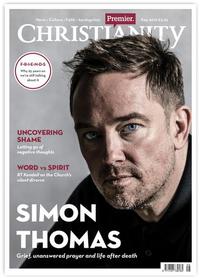
Last month, Labour MP Diana Johnson’s Ten Minute Rule bill to decriminalise abortion was voted through to a second reading by an overwhelming majority. Ten Minute Rule bills don’t usually become law, but the abortion lobby will use this bill to create momentum in Parliament. Should Johnson’s proposals ever be legislated, current legal safeguards would be largely removed. There would no longer be a requirement for two doctors to agree to an abortion. A woman would not have to state a reason for an abortion – officially legalising sex-selective abortion, as well as abortion for the sake of convenience.
Diana Johnson made it clear at a Parliamentary event that what she is ultimately pushing for is abortion on demand right up till birth. The British Pregnancy Advisory Service and others are campaigning to make this a reality, veiling brutal full-term abortion with the mantra, "We Trust Women".
Next, just days later, the House of Lords approved a clause to a separate bill which seeks to impose abortion on Northern Ireland. Currently abortion law in Northern Ireland is devolved, but Labour MP Stella Creasy’s Clause 4 will increase pressure on Westminster to intervene to bring Northern Ireland’s law in line with the rest of the UK.
That such extreme proposals are even being discussed in Parliament should be a wake-up call to the Church: we have been largely silent about abortion for the last 50 years. Over 9 million lives are missing as a result of our abortion laws. Our silence is deadly.
The Church has been largely silent about abortion for the last 50 years
Much of the abortion debate is framed around the deceptive rhetoric of women’s rights – her ‘human right’ to choose. But as Christians, is the injustice of abortion something we can choose to address? Do we have a right to ignore it, or do we have a God-ordained responsibility to oppose it?
If there’s a biblical mandate to engage in justice issues at all, then we are required to speak in defence of the unborn.
Worth it?
As the 19th Century drew to a close, horrific atrocities were being committed against the native people of King Leopold II’s Congo Free State in the pursuit of lucrative rubber production. Natives’ hands were cut off for the crime of failing to meet the quota. People, including children, were eaten by native soldiers, in full view of their fellow-villagers, as punishment for under-production.
The English missionaries – the Congo Balolo Mission (CBM) and the Baptist Missionary Society (BMS) - were uniquely placed to provide evidence and expose this injustice. But they didn’t want to anger King Leopold, as they risked expulsion from the Congo Free State. Was it worth it?
Perhaps we ask ourselves the same question when faced with tackling injustice. Perhaps, like those missionaries, we consider various causes according to their perceived risks and benefits, or weigh them up against other aims and priorities.
Countless men and women in the Bible risked and gave their lives in obedience to God. Think of Joseph, Moses, Esther, Jesus and the early Church (and later, the Reformers). They didn't stop to wonder whether it would be 'worth it'. They simply obeyed and left the outcome to God. Remember the words of Esther when deciding to confront the King about the plot to exterminate the Jews: “If I perish, I perish.”
The question, then, is whether engaging with justice issues is a command of God. If it is, there are only two possible choices – obedience or disobedience.
The heart of God
The Bible leaves no doubt that this matters to God. After Cain kills Abel the Lord says: “What have you done? Listen! Your brother’s blood cries out to me from the ground.” The Mosaic Law is packed full of justice for the oppressed, and all too often it is Israel’s sins of omission – not ensuring justice for the downtrodden – that grieve God’s heart.
But nothing pierces God’s heart more in the Old Testament than the sacrifice of children to Molech – particularly when his own people adopt the practice. This is unsurprising when we consider what a special place there is in God’s heart for children, and how much he hates injustice and idolatry. What’s striking is that not only child sacrifice but tolerance of child sacrifice is a sin, and God holds his people corporately responsible. (Leviticus 20:1-5)
In the Parable of the Good Samaritan, those Jesus highlights the most are the religious people, who saw the man but did nothing and “passed by on the other side”.
As long as missionaries in the Congo held back from speaking out on behalf of the oppressed, there’s a sense in which they co-operated in the sacrifice of humans upon the altar of their mission. Whenever we allow God to back the ‘success’ of our ‘ministry’ but disallow him from speaking to us about other issues such as justice, we make God in our own image and engage in a form of idolatry.
The unborn is our neighbour
The choice we face today is not of weighing up risks and goals, but of obedience to one of God’s central commands: Will we be a neighbour?
It’s hard to think of a harassed people group more numerous, more vulnerable, and more unable to speak for themselves, than unwanted babies in the womb. Any doubt as to whether the unborn really are our neighbours can be settled quickly, scientifically and biblically. The videos freely available at ehd.org show remarkable footage of living, growing embryos and foetuses at all stages of development. The Bible is full of the humanity and personhood of the unborn, from David being sinful from the moment he was conceived, to John the Baptist leaping in the womb for joy.
The unborn is our neighbour and we are commanded to love our neighbour as ourselves. Can there be any question over the biblical mandate to defend the unborn?
Thankfully the CBM did come out publicly against the Congo injustice in 1903, a year before the British Government’s ‘Casement Report’ came back and, with the help of the newly invented Kodak, turned the political tide. Sadly, the BMS only came out after that fact, once there was no real political risk in doing so.
My prayer is that we will think and act differently from our forebears. The missionaries' initial reticence sounds nuanced and wise, and it is echoed by many church leaders today with reference to abortion. To speak will cost something, but consider the much greater cost of silence. 800 unborn children are killed every working day. Diana Johnson’s bill to decriminalise abortion is a stepping stone towards abortion on demand. Can we live with that reality?
We do not get to choose the course of action that we think is ‘worth it’. The decision is to deny ourselves, take up our cross, and simply follow Jesus, obeying his commands. But wasn’t that always the deal?
This blog is by Dave Brennan, founder of Brephos, a Christian charity equipping the Church to speak out on the issue of abortion; and Camilla Olim - a volunteer with Brephos and former communications officer and writer for Christian Concern.
SPECIAL: Subscribe to Premier Christianity magazine for HALF PRICE (limited offer)




























